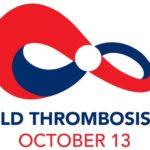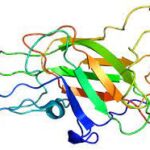It is World Thrombosis Day today. To show support you should be wearing red and blue. This could be a little awkward the day before the election! These are some important facts about blood clots you might like to share with others ... Over 50% of all blood clots occur either in hospital or soon after discharge. Globally, over 10 million cases of … [Read more...]
Factor V Leiden – Family screening
Factor V Leiden is an inherited condition with a risk of thrombosis. Heterozygous If you have one parent with the mutation and you have inherited factor V Leiden from them, your risk of a blood clot is 5 to 7 times higher than normal. Homozygous If both parents have Factor V Leiden and you have inherited two copies of the mutation, your risk of a blood clot is 40 … [Read more...]
Factor V Leiden and the Pill
The oral contraceptive was first introduced in the US in 1960. Within two years, over a million women in the US were taking the “pill” as a safe, effective form of contraception. The use snowballed, and hundreds of millions of women now use oral contraceptives. Some regard it as the most socially significant advance in modern medicine as it gave women reproductive … [Read more...]
Factor V Leiden – What does it mean for me?
What is my risk of a clot? In the general population, the risk of having a blood clot (either a deep vein thrombosis or pulmonary embolus) is quoted at 1 in 2000 people each year. However, the risk is highly dependent on your age. If you are in your twenties the risk is about 1 in 10,000 and if you are over 70 years it is as high as 1 in 200. If you have the factor V Leiden … [Read more...]
Factor V Leiden – What is factor V Leiden?
In the last two posts, I discussed how factor V works and how Protein C controls its activity. In this post, I will look at the difference between Factor V and Factor V Leiden. What is Factor V Leiden? Factor V Leiden is an alternative form of Factor V caused by a small mutation in the factor V gene. First, I will take you through some basic genetics to help you … [Read more...]
How long should I stay on anticoagulants – Coronation Concert Edition
How long you need anticoagulants depends on the balance of risks between having a blood clot and bleeding; these will differ for each individual. Your specialist will decide the length of time anticoagulants are needed in your particular case. This is just a guide. To help you remember, I have added song titles from the performers at the Coronation Concert. I have even … [Read more...]
Factor V Leiden – Controlling Factor V
I explained how Factor V helped to speed up clotting in my last post. I compared it to pouring petrol on a fire. In this post, I will look at how Factor V is controlled. Clotting is complex but quite precisely controlled. It only takes place when and where you need it. You want the bleeding to stop at the site of the injury when you cut your finger, but you don’t want … [Read more...]
The Royal Disease
Since the Coronation, the internet and magazines have been full of pictures of Royalty. So I thought it would be appropriate to post on the "Royal Disease", namely Haemophilia. Although this is not strictly related to taking anticoagulants, it is a serious disorder affecting clotting. Queen Victoria Queen Victoria was a carrier for Haemophilia. She had nine children. Her … [Read more...]
Factor V Leiden – What is Factor V?
In my introductory post about Factor V Leiden, I discussed how this is an inherited condition and relatively common affecting around 4% of people of European decent. In this post I will take you through some of the basics of clotting to help you understand why Factor V Leiden increases your risk of clots. Factor V Factor V Leiden is an abnormal form of the clotting … [Read more...]
Coronation and clotting
As the Coronation is taking place this week, I thought I should try to find some link between the Coronation and clotting. First, I tried to find out if any royals had suffered from clotting problems. George VI died from coronary thrombosis, and I am sure other Royal family members have had heart problems or venous thrombosis, but none seemed particularly interesting. I also … [Read more...]










